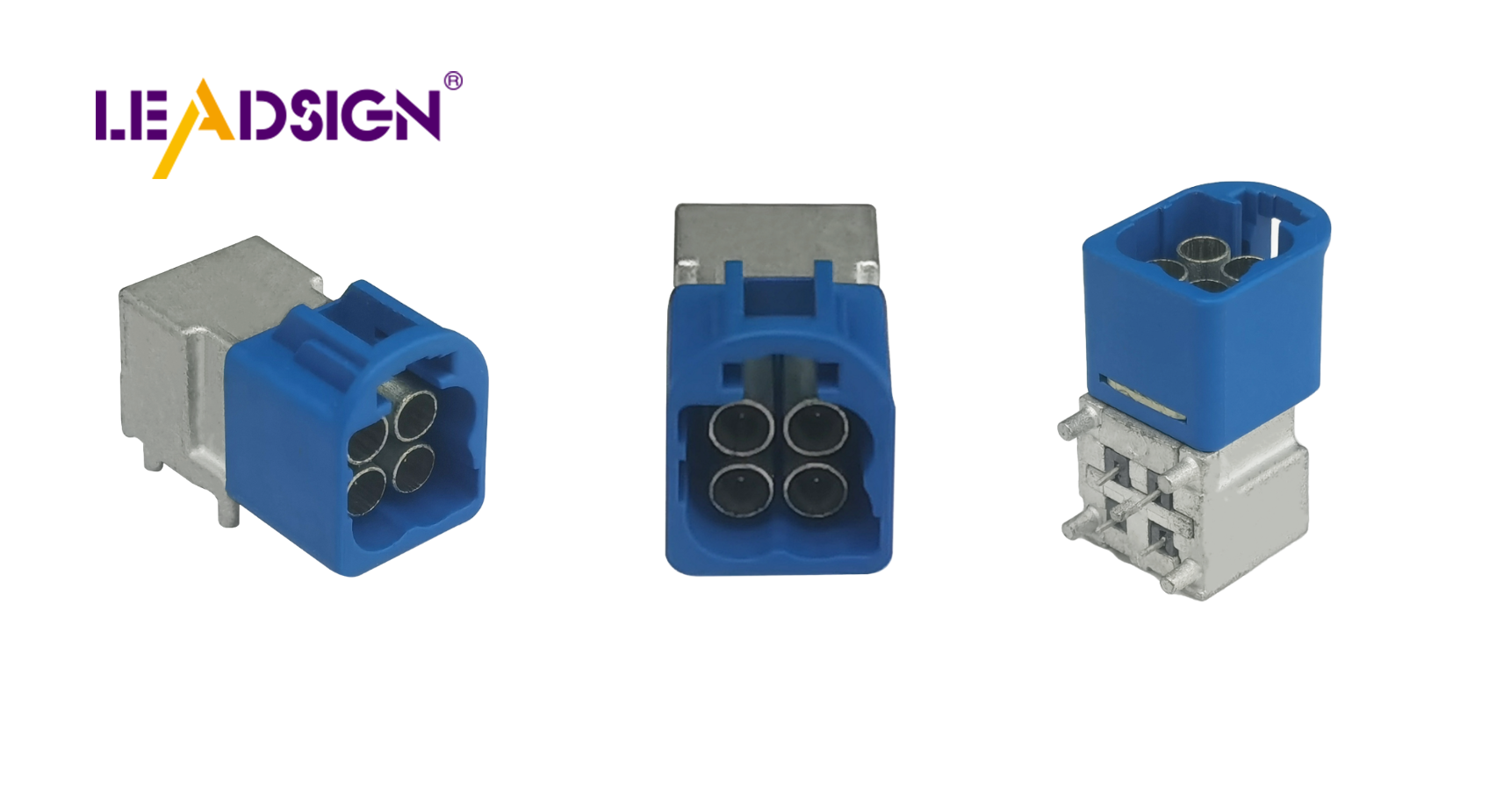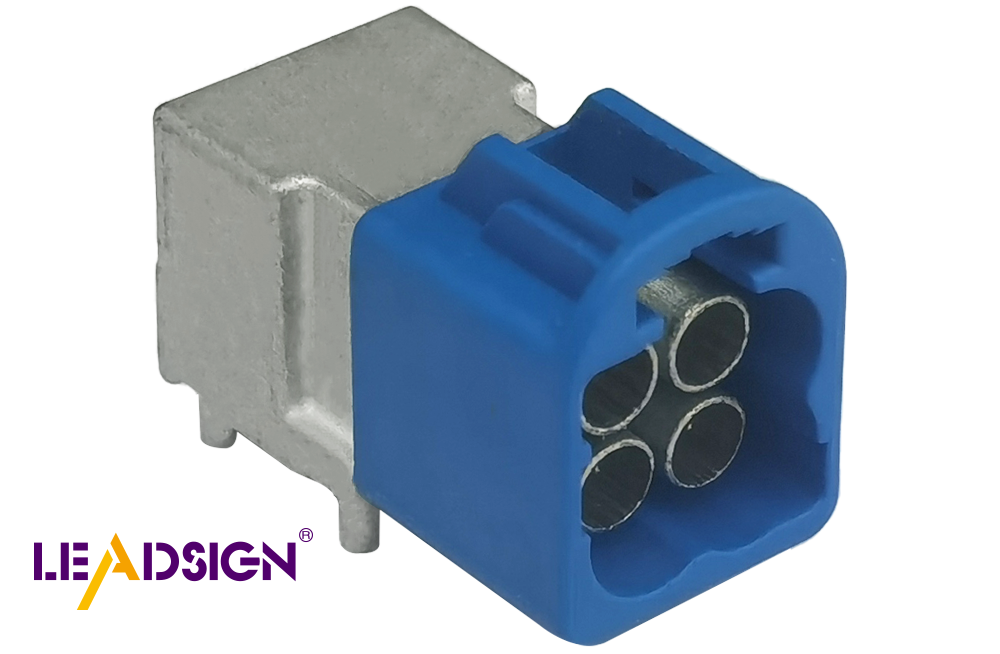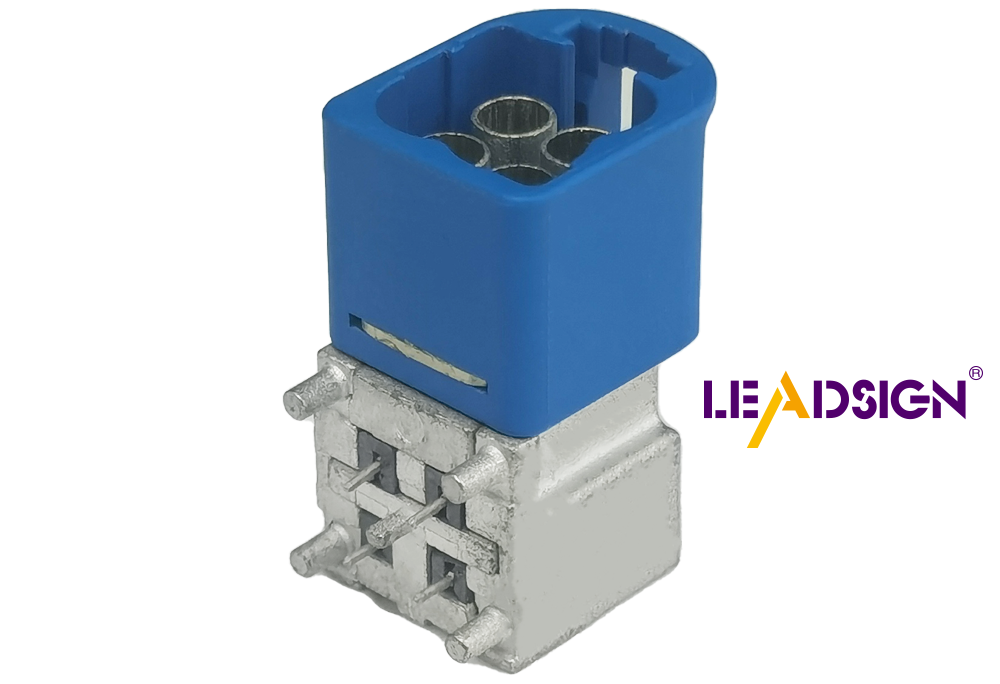Master Automotive Electrical Connectors Types Easily

Car electrical connectors are very important. They help electricity move smoothly in your car, powering things like the engine and radio. Understanding automotive electrical connectors types helps fix problems quickly and keeps connections strong. With more electronics in cars, the demand for various connector types is increasing. The market might be USD 8.76 billion by 2029. Learning about these connectors can enhance your car's performance and safety.
Common Types of Automotive Electrical Connectors

Knowing different types of car electrical connectors is important. They help electricity move in your vehicle. Let's look at some common ones you might see.
Blade Connectors
Blade connectors are used a lot in cars. You find them in car radios and lights. They have a flat metal piece that fits into a slot. This makes it easy to connect and disconnect, perfect for changing parts often. Blade connectors come in many sizes for different wires, ensuring they fit well.
Bullet Connectors
Bullet connectors, or bullet terminals, give quick and strong connections for wires. They have a round male end that fits into a female socket. Use them to join wires together, making them useful in many car tasks. Bullet Connectors come with features like heat shrink and double crimping for extra safety and strength. They're great when you need connections that handle shaking and movement.
Pin Connectors
Pin connectors are also common in cars. They have pins that fit into holes in sockets. You'll see them in engine controls and other key systems. Pin connectors offer stable connections, which is vital for your car's electric system to work well. They come in different setups so you can pick the right one for your needs.
By learning about these car electrical connector types, you keep your vehicle's electric system working well and efficiently. Whether fixing something simple or doing big installs, knowing the right connector helps a lot.
Crimp-Style Connectors
Crimp-style connectors are important in car electrical systems. They join wires without soldering. You squeeze a metal sleeve around the wire to make it strong. These connectors come in different sizes for various wire thicknesses, ensuring they fit well.
Advantages of Crimp-Style Connectors:
Ease of Use: Quickly connect wires without special tools or skills.
Reliability: The crimp makes a solid link that resists shaking.
Versatility: Many sizes and styles fit different car connector types.
Pick the right size for your wire when using crimp-style connectors. A good crimp means a reliable connection, lowering the chance of electric problems. Always check your work to make sure it's secure.
FAKRA-Mini Connectors
FAKRA-Mini Connectors are new in car electrical systems. They send data fast, great for cars with advanced electronics. They handle up to 20 GHz and 28 Gbps, allowing quick communication between car parts.
Key Features of FAKRA-Mini Connectors:
Compact Design: Small size saves space, using 80% less room than old ones.
High Performance: With 50 Ω impedance, they keep signals clear.
Durability: Built tough for harsh car conditions with strong build.
You find FAKRA-Mini Connectors in self-driving systems, maps, and entertainment setups. Their high data rate handling is key for cars with complex electronics. Knowing these connectors helps your car's systems work well and efficiently.
How to Spot Different Connectors
Knowing car electrical connectors is key for your car's electric health. Finding these connectors might seem hard, but with practice, it's simple.
Look and Learn
Check the shape, size, and color of connectors. These show what they do. FAKRA connectors have colors that help you spot them fast. They are used in high-tech systems like GPS and infotainment because they lock tight to stay put even when the car shakes.
Bullet connectors are round. The male part fits into the female part well. Double crimping makes them strong for many uses.
Blade connectors are flat and found in radios and lights. Their easy design lets you connect or disconnect quickly, perfect for parts you change often.
Use Books and Guides
To know connector types well, read your car's manual or guides. They have pictures and details about each connector in your car. Manuals tell where connectors are and what they do in your car's electric system.
For tricky ones like FAKRA, which carry power and signals, special guides help a lot. They explain how these fit with things like ECU modules and antennas so you can connect right.
By looking closely and using books, you can find different car electrical connector types easily. This helps fix things better or upgrade your car's electric parts safely.
Connecting and Disconnecting Connectors Safely

Easy Steps to Follow
Be careful with car electrical connectors. This keeps your car safe. Follow these easy steps:
Turn Off the Power: Make sure the car is off first. This stops shocks or damage.
Know the Connector Type: Look at its shape and color to know it. FAKRA connectors have special colors for easy spotting.
Check the Connector: See if it's worn out or broken. Bad connectors can cause problems.
Hold the Connector Right: Grab it by its body, not wires. Pulling wires can break them.
Take Apart Gently: Wiggle it softly while pulling apart. Don't use too much force.
Connect Firmly: Line it up right with its socket. Push until you hear a click for a good fit.
Test It Out: Turn on power again and check if everything works fine.
Mistakes You Should Avoid
Avoid these mistakes to keep your car's electric system good:
Pulling Wires: Always hold the connector, not wires, to avoid breaking them.
Forcing It In: If it doesn’t fit, don’t push hard; check type and alignment first.
Ignoring Wear: Don’t ignore damage signs; replace bad ones to stop issues later.
Skipping Tests: After connecting, test to make sure it's working well.
By following these steps and avoiding mistakes, you handle car connectors safely and well. This helps keep your car running smoothly and safely.
Fixing Common Connector Problems
Knowing how to fix car electrical connectors can save time. It stops more damage to your car. Finding and fixing bad connectors keeps your car's electric system working well.
Spotting Bad Connectors
To find bad connectors, look for signs of wear or damage. Check for cracks, rust, or color changes on them. These often mean there's a problem. Watch out for loose connections since they cause electric issues.
Howard, an expert in safety, says handling and care are key. He advises knowing power cord rules and picking the right one to stay safe.
Listen for weird sounds like buzzing or clicking. These might mean a bad connection. If parts aren't working right, the connector could be why. Use a multimeter to check if electricity flows through it properly.
Fixing and Replacing
Once you find a bad connector, it's time to fix it:
Turn Off Power: Always switch off the car before starting work. This stops shocks or more harm.
Clean It Up: Use cleaner spray to get rid of dirt or rust from the connector. Clean ones connect better.
Fix or Swap: If it's too damaged, replace with a new one that fits right.
Make It Tight: After fixing or swapping, make sure it's tight so no future issues happen.
Check Everything: Test the system after repairs to see if all works fine again.
By doing these steps, you can fix common problems with car electrical connectors easily. Regular checks and careful use keep your car's electric parts in great shape.
Knowing car electrical connectors is important for your car's safety. Learn about different connector types to fix problems fast. Practice finding and using these connectors to get better. Taking care of connectors makes sure they work well, stopping electric issues. Regular checks and changing bad ones keep your car working fine. Understanding these connectors helps you feel sure when fixing or upgrading your car.
See Also
Understanding HSD Connectors Essential for Automotive Applications
Benefits of HFM Connectors for Automotive Performance
Exploring High-Speed FAKRA-Mini Connectors for Cars
Key Benefits of High-Speed FAKRA-Mini Connectors in Vehicles
Significance of Fakra Connectors in Today's Automotive Design

